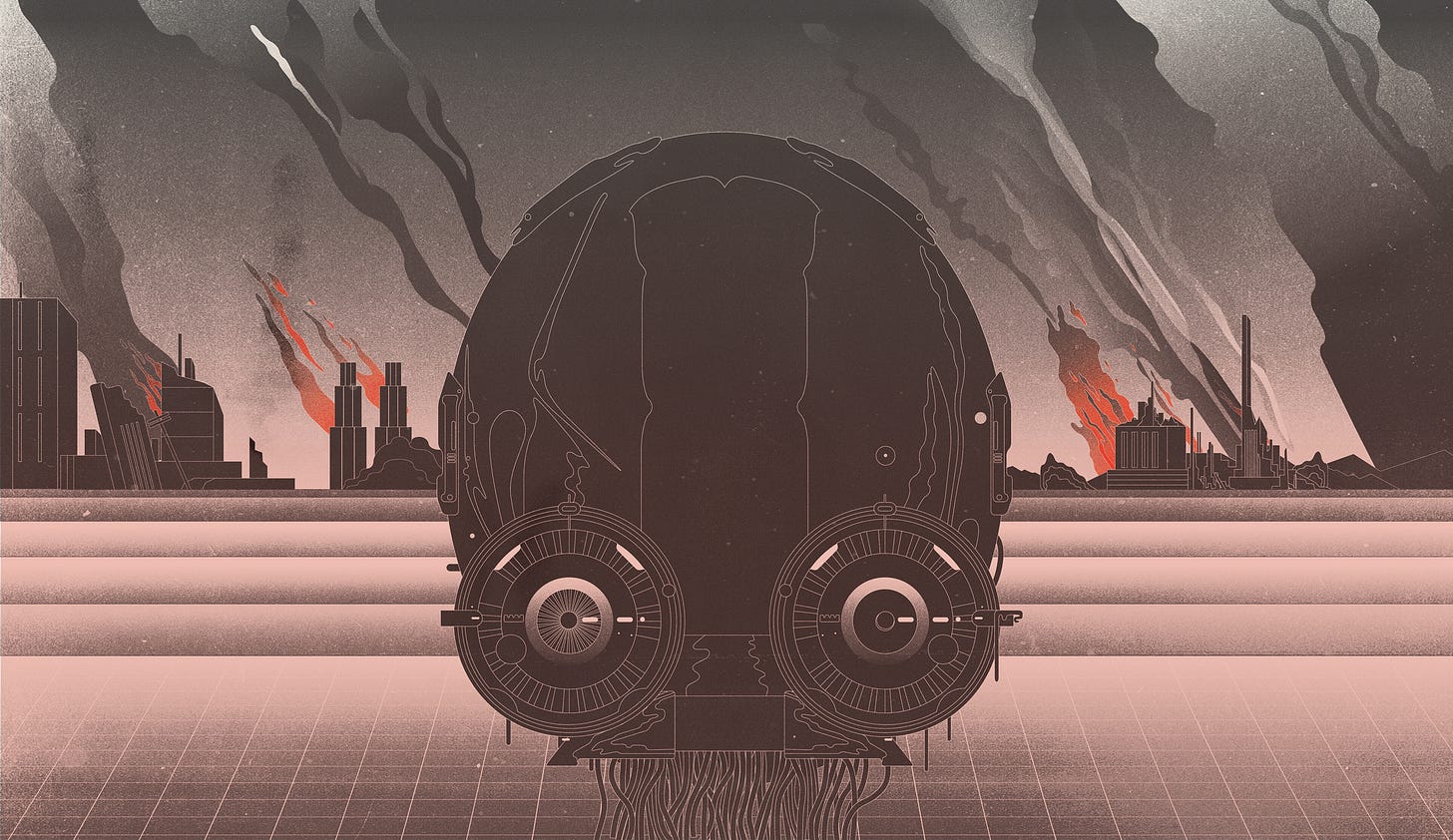I'm Not Afraid of AI, I’m Afraid of Humanity
AI is a tool. Humanity is a nightmare.
I recently attended an AI-focused dinner hosted by Beyond Labels. The event gathered many notable people in tech, finance, media, and academia to discuss AI's promise and risks. Gillian Tett of the Financial Times and Nick Thompson of The Atlantic led the conversation.
There was considerable discussion about AI's potential downsides. The spreading of misinformation and loss of certain jobs were primary concerns. As a parent, one leader also worried children wouldn't build skills necessary to learn if immersed in AI environments.
I understand these worries. But I’m not afraid of AI. I’m afraid of humanity.
AI didn’t create the lack of trust in institutions, it’s just a great means for exploiting it. AI doesn’t want to create propaganda. It’s instructed to. Before AI there have been numerous ridiculous, easily disprovable conspiracy theories have spread far and wide without AI like Pizzagate. AI will scale the means of production, sure, but we were already pretty messed up.
I used Claude, the LLM from Anthropic, to help write this post. Claude took bullet points and fragmented thoughts into a coherent blog post. Claude took creative components and assembled them into a more digestible piece of content. LLMs aren’t original. They scale the creator.
LLMs can’t see, hear, smell, taste, or feel. We haven’t yet created sensors that can convert most real-world data into a format machines can easily understand - what experts call having the required "diagnostic sensitivity." Humans can absorb all kinds of sensory information seamlessly.
But AI systems rely on digital data. An AI can easily analyze a financial report or other digital text document. This is because the report is already converted fully into bits of data that the AI can process.
However, an AI cannot yet taste a new dish at a restaurant and write an original review about the flavors and textures. That's because the subtle nuances of the tasted food are challenging to quantify in a digital format that AI can comprehend and assess. The human critic must first taste the food, and then write their review in words that approximate the experience.
We knew 2024 was going to be a difficult period since 2020. AI has a significant multiplier effect, but the existing hatred that acts as the underlying fuel is far more concerning. It was going to be really bad; AI will just make it worse.
AI makes it possible for me to write this newsletter consistently. AI also makes it easier to create spam. While AI-generated SEO spam is becoming work, this Wikihow post called ‘How To Wear a Hat’ has been around in some form for at least ten years.
AI is a tool. It scales the best and worst in humanity. And I’m afraid of it.



